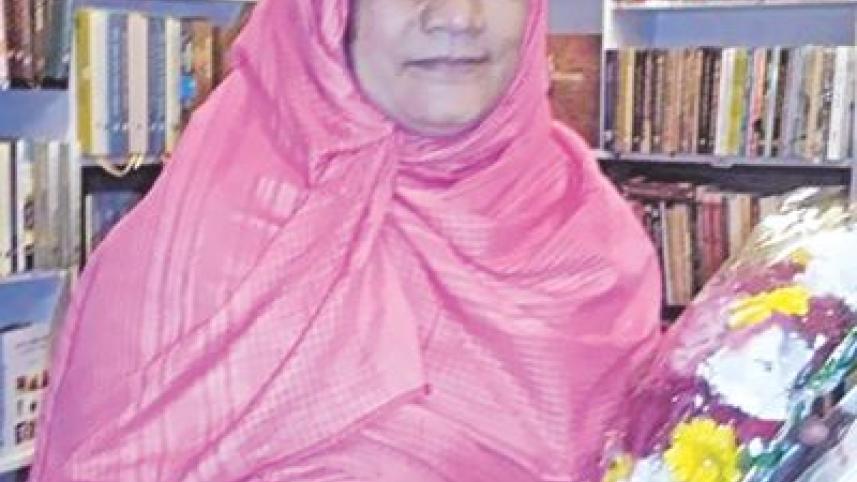Community worker turns writer

Since her childhood, Monjuara Parvin always had an empathy with the people of her community and determination to help them overcome their sufferings. However, she was yet to discover her writing skills.
“I had to write reports for my office and read them to my daughter Ahnaf Tahmeeda. One day, she told me those sounded like stories,” said Monjuara, who is from arsenic-hit Samta village in Jessore's Sharsha upazila.
Inspired, she started writing with more passion, going into details about the pain of her villagers caused by arsenic, an issue that caught global attention after scientists found naturally occurring arsenic in the groundwater across huge swaths of rural Bangladesh in 1995.
Monjuara was working for a Japanese aid group, Asia Arsenic Network (AAN), which began its arsenic mitigation project in 1997. As a community motivator, she had to write office reports after visiting many villages, including Samta.
She also used to advise the villagers how to avoid being affected by arsenic, which still affects some 19 million people in the country.
During those visits, she learnt about the sufferings of those affected by arsenicosis. She also deeply felt the agonies of those who had lost their near and dear ones to cancer and gangrene caused by over-exposure to arsenic.
As the villagers had misconception that arsenicosis was a curse and function of ill spirits, and that it was infectious, and that women's going out of home was a stigma, it was difficult for Monjuara to visit and deal with the villagers.
This hurdle, however, could not stop her from playing her role in creating awareness among the villagers and she kept on her work.
“I wanted to keep records of the agonies the arsenic patients go through,” said Monjuara, who did her Bachelor of Arts under an Open University programme.
“I kept going out, educating people and writing,” she said as the community worker, now 46, shared with her audience how she wrote her book on this problem of her village. The book, titled “Samta: An Arsenic-affected Village”, was published in 2013. It is her first and the only book.
Monjuara was speaking at a discussion titled “The Arsenic Chronicles: Stories of a Silent Killer from Two Perspectives” at the city's Pathak Shamabesh Centre on Thursday. The University Press Limited (UPL), the publisher of her book, organised the programme.
AAN officials Kazuyuki Kawahara and Sachie Tsushima always inspired her to write. The society she saw in her childhood, the cultural norms as well as the agony of the arsenic-affected people in her village came prominently in her easy-to-read Bangla book.
The book is a combination of 81 articles written by Monjuara. Some of them are her work reports while the others are based on her personal experiences.
After most of the write-ups were gathered by 2011, AAN approached the UPL that showed strong interest in publishing them as a book.
Badiuddin Nazir, editor of the book, said as Monjuara's writings have narratives of the rural people and the UPL had hardly published anything like her book before.
“I am happy that the book has been published,” said Monjuara. She, however, expressed frustration over lack of interest by the government and the NGOs in mitigating arsenic.
People in Samta do not have enough drinking water as even the deep tube well water in much of the southwestern districts contains arsenic.
Between 2000 and 2016, at least 43 people died of arsenic-related diseases in Samta while many more are suffering from it. The poor and the women, who lack nutrition, are the most vulnerable, she said.
Monjuara said she also met the local government representatives and urged them to address the issue. “They come, listen and go, but don't take any action. The rich don't even go to the affected families to offer help”.
The UPL also published the Bangladesh edition of “The Inheritance Powder” by British social scientist and novelist Hilary Standing, who extensively researched on Bangladesh's development since 1982.
The novel deals with the arsenic problems of Bangladesh and its links to the international aid agencies.
“Arsenic situation drove me to write the book. It has disastrous consequences on the development. So, I thought I should write it in a creative way,” Hilary Standing said in the discussion moderated by Brac university's Prof Firdous Azim.




 For all latest news, follow The Daily Star's Google News channel.
For all latest news, follow The Daily Star's Google News channel.
Comments